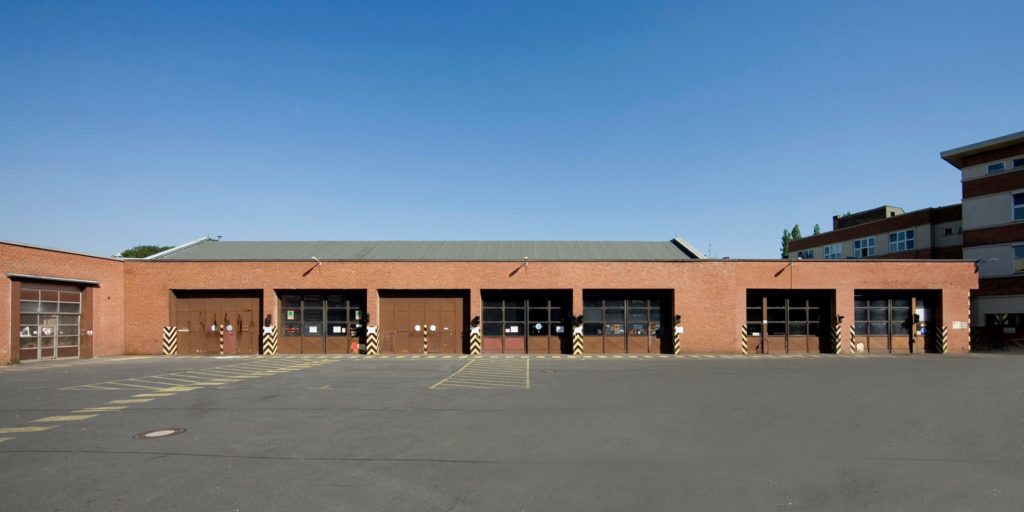Art World
Berlin Artist Community Enraged by $35 Million Sale of Studio Complex as Gentrification Debate Intensifies
The site houses the studios of some 50 artists, including those of Katharina Grosse and Monica Bonvicini.

The site houses the studios of some 50 artists, including those of Katharina Grosse and Monica Bonvicini.

Henri Neuendorf

Dozens of Berlin artists are worried about the future of their workspaces following the purchase of the Uferhallen studio complex by a private conglomerate. The landmark building in the northern district of Wedding, which was owned by the city of Berlin until 2006, houses the studios of major artists including Monica Bonvicini, John Bock, and Katharina Grosse. The €30 million ($35.4 million) deal was finalized last Wednesday.
According to local newspaper Der Tagesspiegel, the new owners are rumored to include the investment company Augustus Capital and brothers Oliver and Marc Samwer of venture capital firm Rocket Internet. The city of Berlin had submitted an offer to buy back the property it sold to a joint-stock company in 2006, but withdrew as the asking price escalated.
In a city that is rapidly changing, the Uferhallen studio complex is the latest flash point in an ongoing debate over commercialization and gentrification. Located in a former bus depot, the 200,000-square-foot, heritage-listed complex houses approximately 50 studios.
Artists first voiced concerns over the commercialization of the property two years ago, after the previous owners temporarily leased a section of the site to sportswear giant Adidas; the company turned the facility’s exhibition space into an indoor soccer complex. Now that the entire building has been sold to private investors, many artists are fearing the worst.
Daniel Bormann, CEO of Realace, the company entrusted with the development of the complex, assured local daily Berliner Zeitung that the new owners do not intend to scrap the studio spaces. Bormann described the purchase as a “long-term investment” and promised “cautious development without a hurry.”
The artists, however, are not convinced. “Of course I, and many other tenants, are concerned about our studios, workshops and offices,” Manfred Peckl, an artist who rents a studio at the complex, told artnet News in an email. “Over the past 10 years, the Uferhallen has developed into an important cultural site for Wedding and Berlin and contributed immensely to the changing perception of the neighborhood and the city. It would be a pity if the fears come true and property speculation makes the ground infertile for culture and small business.”
According to artist Monica Bonvicini, the mood at Uferhallen has hit rock bottom. Many tenants spoke repeatedly with representatives of the owners and the city to find the best possible buyer for the complex, only to have their work undone by the sudden sale.
“People feel cheated, rightly so, [and] angry,” Bonvicini said in an email. “I totally understand the mood. The Uferhallen has been a place of artistic diversity with very few [parallels], if any, in town… I just hope a solution will be found so that we all—around 50 artists—will continue to have working places that are not on the edges of town.”
Speaking to artnet News, Bernhard Kotowksi of Berlin’s Association of Professional Visual Artists (BBK) called on the city to keep the new owners honest. “The state of Berlin should do everything it can to support the artists working at Uferhallen, because the gentrification of this place would leave 50 artists without a workplace, compromising the art infrastructure of the city and irreversibly damaging the social balance of inner-city Berlin.”